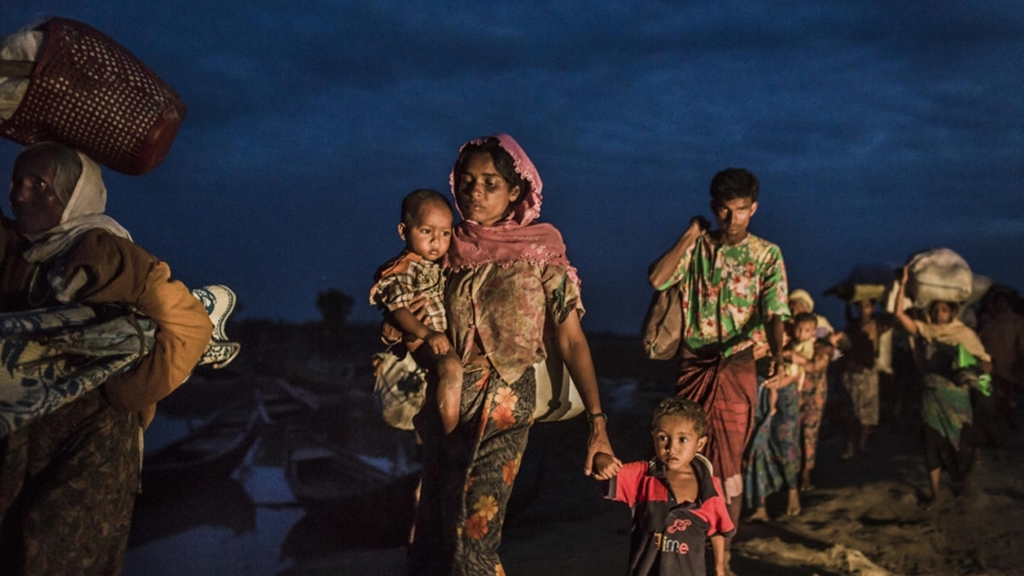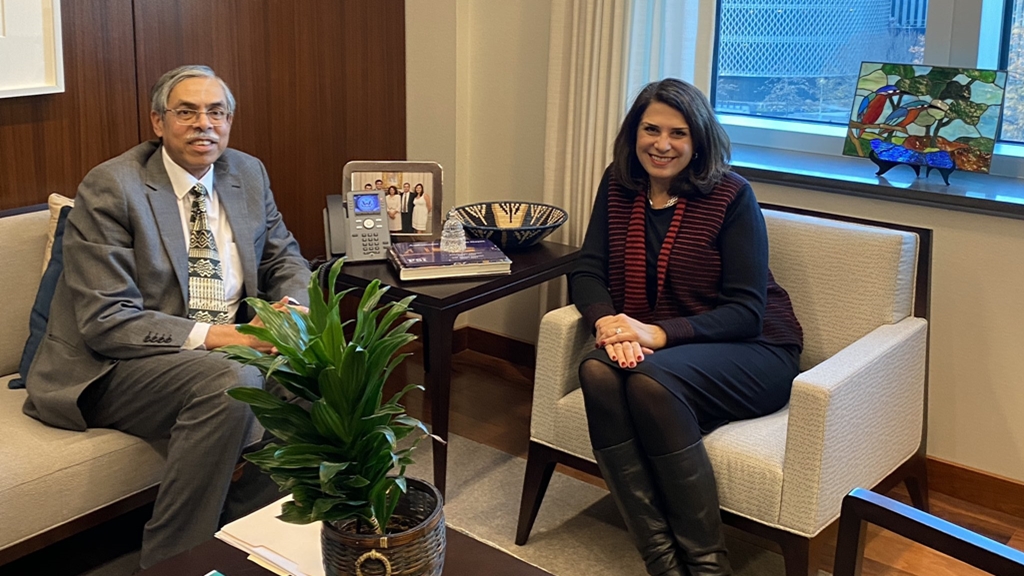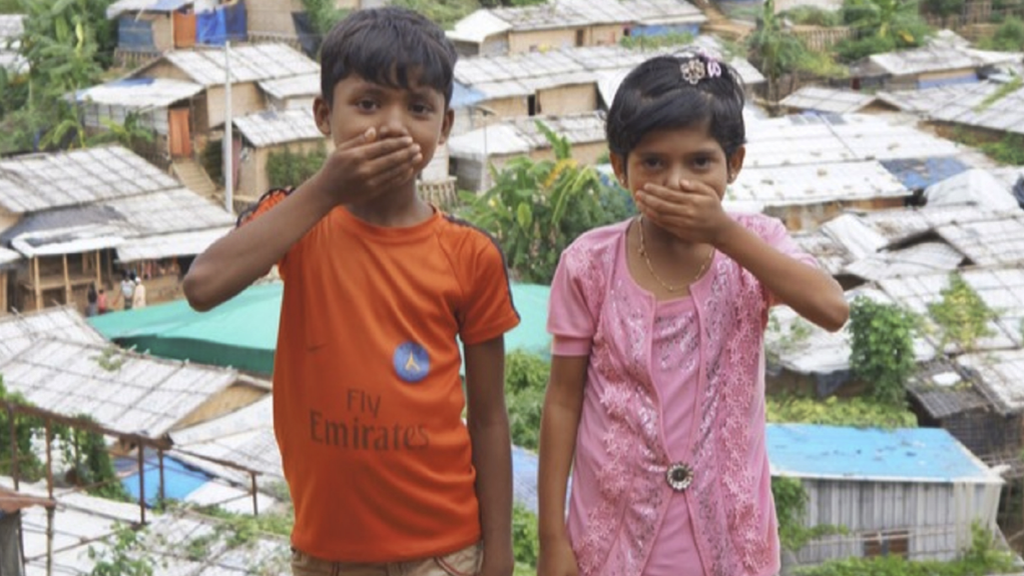
The Rohingya Genocide, Three Years On
- 06/10/2020
- 0
By Ian D’Elia, The Organisation for World Peace
The genocide against the predominantly Muslim Rohingya ethnic minority in Myanmar has persisted for just over three years. Though the history of the Rohingya’s oppression under the Burmese majority spans many decades, the ongoing crisis was instigated by a military crackdown in August 2017, driven by Myanmar’s recent resurgence of Buddhist nationalism. The crackdown marked the beginning of a systematic campaign of murder, torture, rape, and arson – dubbed “a textbook example of ethnic cleansing” by the UN – that continues to this day. The last three years have seen alarmingly little action from the international community, but some new developments over the last month in Myanmar and at the UN may mean progress is near for the Rohingya.
The Rohingya have dwelled in the land now known as the Rakhine state of Myanmar since the eighth century. Between the late eighteenth century and mid-twentieth century, the Rohingya were occupied by Burma, the British Empire, Japan, and Britain once again. The state was made part of Burma after World War II, initiating decades of tension and oppression born of hatred developed under British rule. The years from the 1960s to 2016 saw four military crackdowns on the Rohingya, with increasing frequency. Then came the unprecedentedly hostile crackdown in August 2017, two months after which approximately two-thirds of the total Rohingya population had fled Rakhine state. By August 2018, one million Rohingya had become refugees from Myanmar.
The ensuing inaction of states and international organizations has now allowed the genocide to continue for three years. As the foremost destination state for Rohingya refugees, Bangladesh swiftly revived a plan in October 2017 to relocate the refugees to a desolate, flood-prone island called Thengar Char. In addition, all bilateral attempts between Bangladesh and Myanmar to repatriate the Rohingya have proved inadequate. Similarly, China has downplayed the crisis merely as unrest arising from economic underdevelopment. Though the United States acknowledged ethnic cleansing in Myanmar in November 2017, all economic sanctions and diplomatic efforts have been cut short. At the Association of Southeast Asian Nations, the Rohingya genocide has exacerbated international tensions and crippled the organization. Finally, although the UN quickly acknowledged and condemned the genocide, provided some humanitarian aid, and called for cooperation, accountability, and even intervention, little of substance has been done.
Meanwhile, between January 2018 and June of this year, Myanmar acknowledged and allegedly carried out sentences for a few of the crimes committed by its military, however a number of offenders have already been released, according to Reuters. In addition, according to Al Jazeera, on May 25th, Myanmar filed a report on its adherence to measures to protect the Rohingya at the International Court of Justice (ICJ), though details of the report have not been released.
The alarming lack of action from the international community has not only made a number of states and international organizations complicit in the genocide, but also has progressively diminished the legitimacy of the global human rights regime, and thus has made action increasingly less likely over the last three years. The reasons for the initial inaction of influential states and international organizations such as China, the United States, and the UN immediately following the military crackdown in 2017 are largely idiosyncratic. China refrained from action due to its particularly strong adherence to norms of state sovereignty and non-intervention, alongside its general lack of concern for human rights issues.
The United States never took serious measures because the initial attempt to exert pressure on Myanmar through economic sanctions proved inadequate, discouraging further action. Moreover, soon after former Secretary of State Rex Tillerson bravely branded the crisis as “ethnic cleansing” in November 2017, he was fired. The UN reacted swiftly to the crackdown by denouncing the cleansing and increasing humanitarian aid, but when this proved insufficient, the organization resorted solely to verbal promotion of peace and to weak plans for cooperation which have remained unrealised. Altogether, because all of these entities exert significant global or regional authority, their inaction in the face of a confirmed genocide has diffused norms which diminish the normative force of human rights and thereby discourage further action.
However, the last month has seen some unprecedented events in Myanmar and at the UN which may mean that real progress towards ending the Rohingya genocide is soon to come. On September 8th, two soldiers who had deserted from Myanmar’s army testified on video that they had been ordered to kill and rape Rohingya villagers. This constituted the first public confession from soldiers of atrocities committed by the army, which is valuable evidence for the ongoing investigations at the ICJ and the International Criminal Court (ICC). The following week, on September 14th, UN High Commissioner for Human Rights Michelle Bachelet stated that the ongoing violence in Myanmar constitutes additional war crimes and crimes against humanity, and subsequently demanded action addressing the violations. Two days later, Myanmar’s military announced an investigation into “possible wider patterns of violations” from before and during the 2017 crackdown, marking another step towards a resolution, according to Al Jazeera.
Towards the end of the month, on 26 September, Prime Minister of Bangladesh Sheikh Hasina called for stronger global action on aiding the long-awaited repatriation to Myanmar of the million Rohingya refugees currently in Bangladesh. In a speech before the UN General Assembly, Prime Minister Hasina said that “more than three years have elapsed. Regrettably, not a single Rohingya could be repatriated. The problem was created by Myanmar, and its solution must be found in Myanmar.”
In order to move towards a resolution, it must be the international community that carries on the momentum that has been generated over the last month. This is a herculean but not impossible task, which may be addressed in two broad steps. First, states and international organizations must acknowledge that mere expressions of sympathy, empty promises, and perfunctory economic sanctions are not only pointless but also detrimental to the cause for peace. This is because when halfhearted efforts fail and are immediately abandoned rather than improved upon in the face of an atrocity so widely acknowledged as ethnic cleansing, the very legitimacy of the norms that demand action be taken by the international community against genocide thoroughly deteriorates. Acknowledgment from these states and organizations that they have been complicit in the atrocity will, at the very least, restore some of this legitimacy for the sake of resolutions to ongoing genocides, as well as to those yet to come.
Second, the international community must pour more of its energy into the ongoing investigations at the ICJ and the ICC, using the new evidence from Myanmar’s military and from UN investigations. In other words, in order for a resolution even to enter into view, states and international organizations have to not only file their own cases against Myanmar, but also exert pressure on the ICJ and ICC to come to a solution while providing assistance wherever necessary. The prioritization of this method is critical, because addressing genocide through international legal authorities such as the ICJ and ICC is widely perceived as legitimate in the international community. This means not only that an order backed by collective action against Myanmar from one of these authorities would carry all the normative force of international law, but also that even if such an order contradicts the norm of state sovereignty which is particularly highly valuable to Myanmar, compliance with that order would very likely not be seen as a sacrifice of sovereignty that diminishes the norm, thereby making compliance more appealing to Myanmar.
In the end, it all comes down to the fact that without deep concern, there is no genuine will, and without genuine will, there will be no resolution. The international community must reflect on the times in history when too little was done and something more could have been done. History has already bestowed upon the crisis in Myanmar the awful name of a genocide, but there is still time that the Rohingya genocide need not be remembered regretfully as an atrocity that the world carelessly allowed to destroy more than a million human lives. In reflection on past mistakes, the world will find the will to end the suffering.
Ian D’Elia: Correspondent at Organization for World Peace







